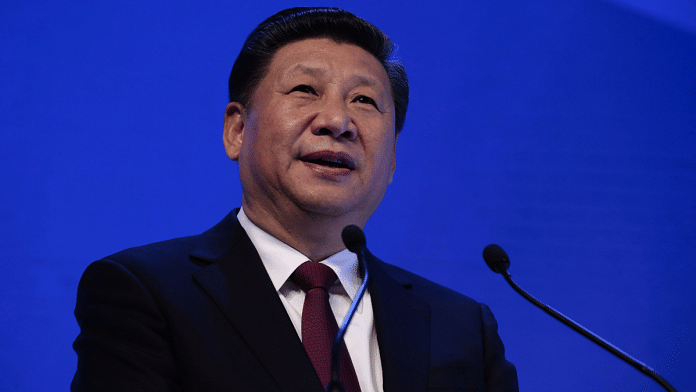Beijing: After surprising the world in September with a pledge to make China carbon neutral by 2060, President Xi Jinping has an opportunity to assert his global leadership on climate before Joe Biden takes an ambitious green agenda to the White House.
Xi is scheduled to speak at the virtual Climate Ambition Summit on Saturday, where more than 70 leaders will mark the fifth anniversary of the landmark Paris Agreement by sharing new steps their countries are taking to slow global warming. All speakers have to present robust, updated commitments — a requirement that led to the exclusion of major polluters including Australia, Brazil and Saudi Arabia.
Xi’s 2060 pledge garnered international praise at a time when China — the world’s biggest polluter — saw its global reputation tarnished by criticism on a coterie of issues, from how Beijing handled the Covid-19 outbreak to crackdowns in Xinjiang and Hong Kong. The litmus test for his speech on Saturday will be how far he goes in clarifying how China intends to achieve the 2060 goal, which has so far lacked key details.
“Climate presents the single biggest opportunity for China to assert true world leadership,” said Scott Moore, a former U.S. diplomat who worked on U.S.-China climate issues. “Having Chinese firms in the lead in manufacturing solar panels, wind turbines, electric vehicles and other ‘technologies of the future’ provides a powerful symbol of a country.”
China has yet to announce its updated 2030 targets within the Paris Agreement, known as Nationally Determined Contributions, which are due by the end of the year. China currently targets reaching peak emissions by the end of the decade.
Climate experts said it would be significant if Xi announces China is accelerating its peak emissions deadline to 2025 or halting new coal projects at home and abroad. It would be less exciting if he announced China would set a launch date for a national carbon-trading market or new targets for both reducing emissions per unit of gross domestic product and adding non-fossil fuels to the energy mix.
Climate diplomacy
Tackling climate change has been an effective foreign policy tool for Xi. In 2014, he worked out a bilateral emissions agreement with former U.S. President Barack Obama that paved the way for both countries to join the Paris Agreement two years later, earning Xi acclaim in China and around the world.
As Biden prepares to take office, climate remains one of the few issues on which the U.S. and China could potentially cooperate. The U.S. is set to re-join the Paris Agreement under Biden, a move that could revive an area of common interest.
“There’s strong mutual trust at the working level between the Democrats and Chinese government that dates back to the Obama years,” said Zhang Haibin, vice dean of School of International Studies at Peking University. “The mechanism could be revived relatively easily,” Zhang said, noting that Xi has already met John Kerry, who will be Biden’s climate envoy.
China’s 2060 pledge could also help create a more positive atmosphere as Beijing and Brussels conduct advanced negotiations over an investment agreement in which climate policies are expected to play a significant role.
“It’s hard to predict exactly what’s going to come” from Xi’s speech, said Dimitri de Boer, chief China representative for ClientEarth, a European environmental law group. But the EU has been eager for China to bring its peak emissions target forward and address the fossil-fuel projects supported by Xi’s signature Belt and Road Initiative, he said.
EU leaders on Friday agreed to cut pollution by at least 55% by 2030, up from 40% previously, giving them a new commitment to tout at the Saturday meeting.
Domestic pressures
In making new climate commitments to the international community, Xi will have to weigh the potential goodwill he would generate against the reality he faces at home. The post-pandemic economic recovery remains a priority, and rising nationalism within China also risks a backlash against any implication that the country’s leaders are making decisions under pressure from foreign powers. Local officials also often resist sweeping reforms.
While state-owned power companies recently pivoted to renewables and the government has spurred new green industries with generous subsidies, China still mines and burns half the world’s coal, the dirtiest fossil fuel, and new coal-fired plants continue to be built. A road map to achieving net-zero proposed by the nation’s top climate scientists argues for incremental changes over the next 15 years followed by a rapid acceleration in solar and nuclear power.
“If Xi brings another gift to the world this Saturday, it shows Xi’s serious about progressing the climate agenda,” said Li Shuo, a climate analyst at Greenpeace East Asia. “If not, that means a long-term pledge is the best Chinese authorities could offer at this stage. This would be a mismatch with international expectations.”-Bloomberg
Also read: Australia excluded from global climate change summit as policies lag



